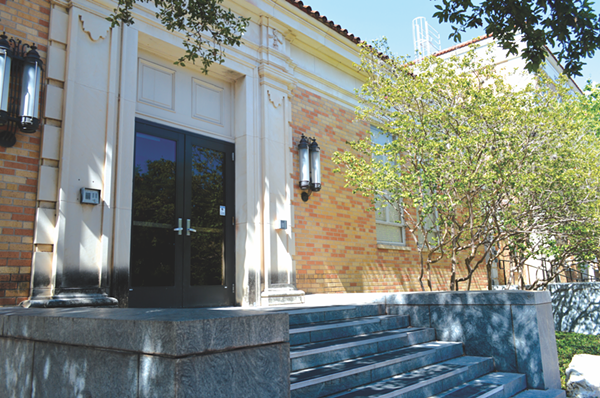Luggage in one hand, pillow in the other, freshman students will clamber up the steps of their first home away from home this fall. But for some students at the University of Texas at Austin, their first dormitory experience will be unique — they’ll live in a completely substance-free environment. The “Healthy Living” Residence Hall is an effort on the part of the university’s Center for Students in Recovery and the Division of Housing and Food Service to provide a community for people wanting to live a sober lifestyle or are in recovery from addiction.
The National Survey on Drug Use and Health has reported that 16 percent of people ages 18 to 25, or college-aged students, struggle with a substance-use disorder. Young adults suffer from substance-use disorder at higher rates than any other age group. UT’s Sierra Castedo-Rodgers says that, due to this percentage, it’s best for schools to assume students on college campuses will need resources for recovery, such as counseling. “It’s really important to acknowledge that schools may not be able to see or recognize students in recovery, but [that] doesn’t mean they aren’t there,” Castedo-Rodgers said. “People in recovery can become seemingly invisible because of the stigma surrounding addiction.”
In addition to offering resources for students who are in recovery on campus, it’s necessary to have preventative measures like education for students before binge drinking or drug use gets out of hand, according to UT officials. Binge drinking, or excessive drinking, can often be normalized in college. For a college-aged person, the National Institute of Alcohol Abuse and Alcoholism determined that binge drinking means four or more drinks for women and five or more drinks for men within a two-hour time span. According to the University of Texas stats, 36 percent of men and 32 percent of women self-reported they binge drank the last time they socialized. School officials such as Trinity University Dean of Students David Tuttle said that this could be due to the belief that college is expected to be a time to have fun and party. “There’s a cultural perception that students expect going into college,” Tuttle said. “They think it’s going to be the time of their life.”

Binge drinking does not necessarily mean that students have a substance-use disorder, but it can endanger people’s performance in classrooms, according to UT’s University Health Services Coordinator William Mupo. Local San Antonio schools are doing their part in abating binge drinking in order to make sure that students succeed inside and outside of the classroom. “As with most schools our first line of defense is education,” Michael Hershberger, St. Mary’s staff psychologist, said. Many school officials say they know students will drink. Officials also said they understand that the majority of students drink safely and casually. In order to ensure that students do just that, Trinity University’s Tuttle says that instead of telling students not to drink, the school focuses on teaching students a safer way to drink, such as pacing drinks throughout the night and what constitutes a “drink.” UTSA, St. Mary’s and Trinity all have modules and videos that freshman students are required to watch and participate in, which teach students safer ways to party and drink.
Many San Antonio schools, such as Trinity University, also have an amnesty policy in place. This allows students to call for medical help without them being implicated for underage drinking. Trinity University officials say that schools should stay focused on student safety rather than punishment for drinking. Calling for help without worrying about the repercussions is essential and can save lives, according to Tuttle. The University of Texas at San Antonio says they don’t have an amnesty policy and that it focuses on the issues on a case-by-case basis.
San Antonio school officials said they understand that drinking is part of the college experience for some students and that, for others (such as students in recovery or those wanting a sober-lifestyle like students at the UT Healthy Lifestyle dorm), it is not. Overall, most of the sources we spoke to for this story say that whatever students decide to do with their time in college, they are most chiefly concerned about the health and wellbeing of their students. They advise students to look into their college’s policies about amnesty and drinking, learn about how to drink safely, and know that if they think they could be at risk of a substance-use disorder, the school is prepared and has options available.















